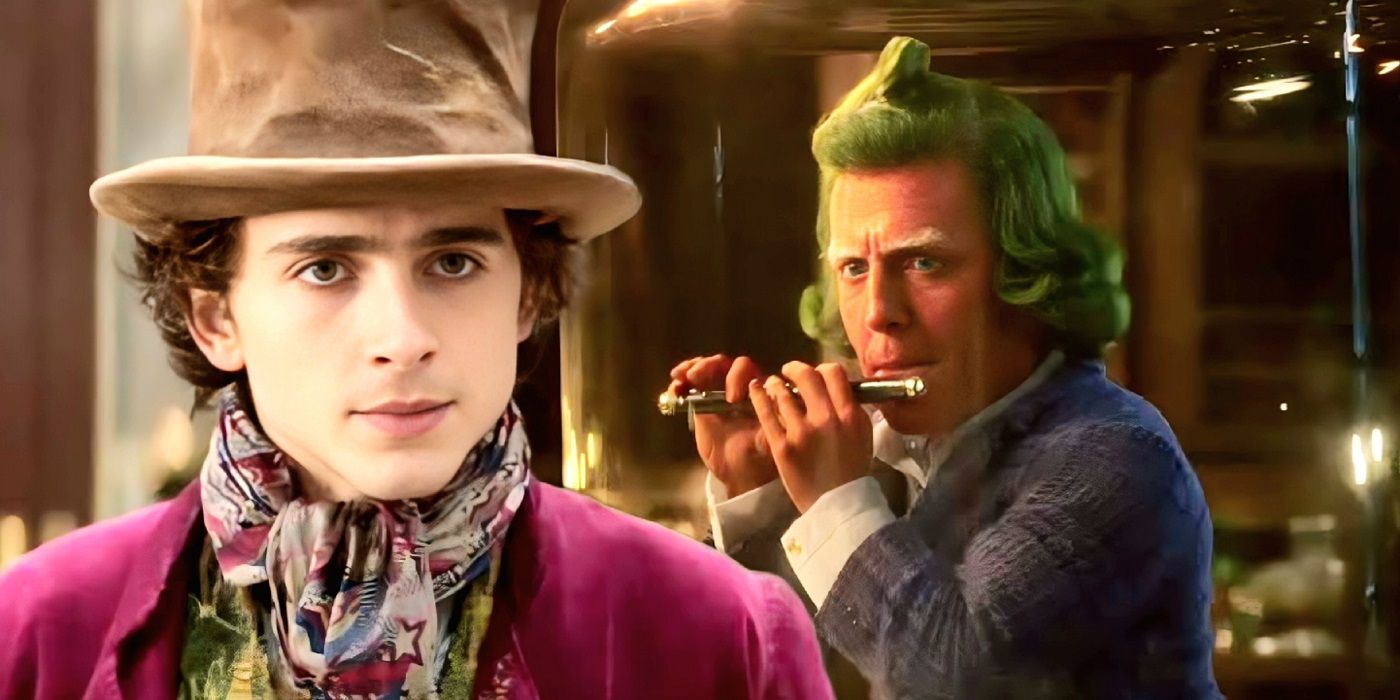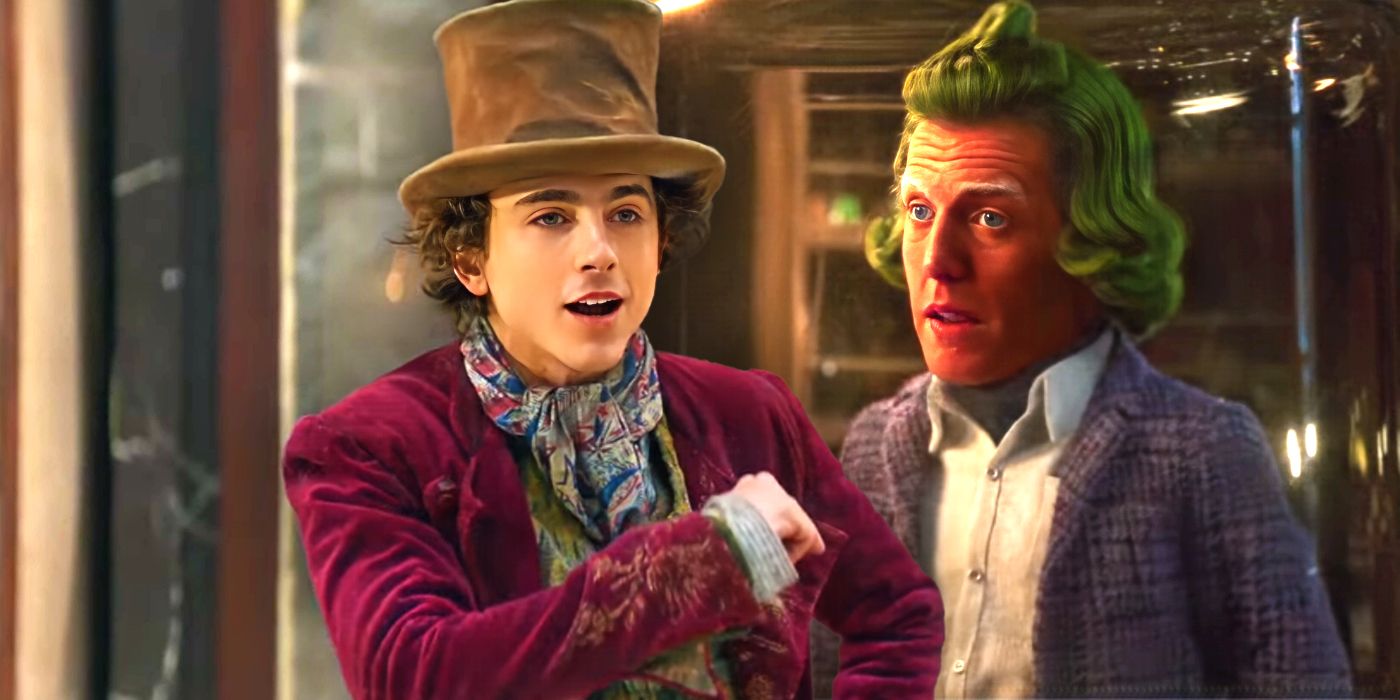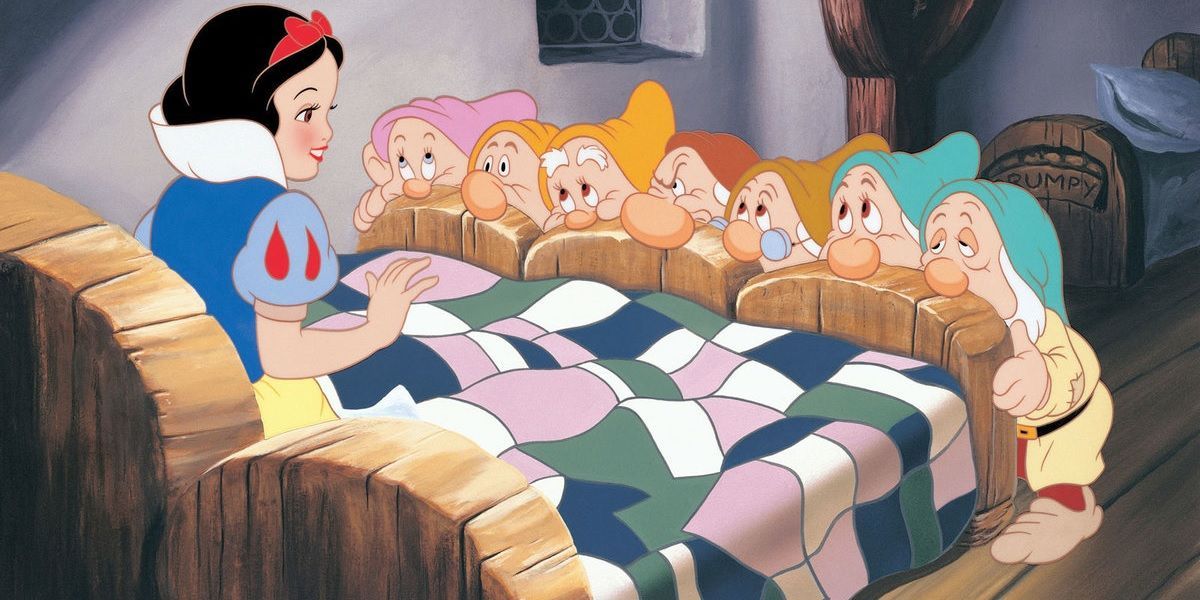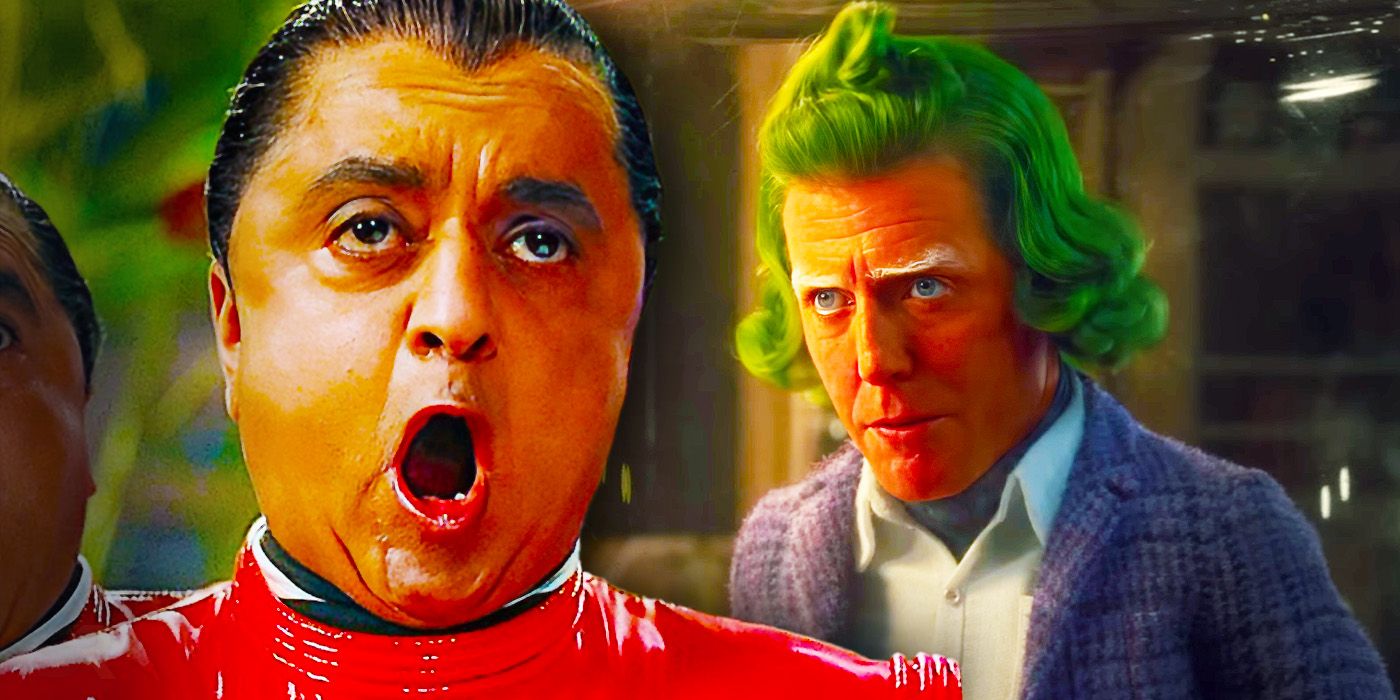Summary
- Wonka's casting choices, including Hugh Grant as an Oompa-Loompa, have sparked controversy and criticism from actors with dwarfism who feel excluded from the industry.
- This casting controversy is not unique to Wonka, as recent films like Disney's Snow White have also faced backlash for casting actors without dwarfism as the seven dwarves.
- The debate highlights the need for greater inclusivity and authentic representation in Hollywood, but there are challenges in finding a balance that avoids stereotypes while providing opportunities for actors with dwarfism.
Wonka appears to be a promising reimagination of Roald Dahl's stories, but its casting choices have already stirred some complex controversies. Directed by Paul King, Wonka will not tread the same path as the other previous adaptations of Roald Dahl's Charlie and the Chocolate Factory. Instead, it will walk audiences through the adventures of younger Willy Wonka and how the eccentric chocolatier first met the Oompa-Loompas. Apart from having a scintillating storyline, Wonka has also made some incredible casting choices by featuring Timothee Chalamet as young Willy Wonka and Rowan Atkinson as Priest.
However, not all casting choices made for the movie are being received as well as others. For instance, while some viewers look forward to Hugh Grant's portrayal of the Oompa Loompa in Wonka, others are seemingly against it. The brewing controversy surrounding Hugh Grant's portrayal of an Oompa Loompa has also reached several renowned actors who have openly talked about their opinions on Wonka's offbeat casting decisions.
Hugh Grant's Casting Has Been Criticized By Other Actors
Many actors have come forward and expressed their views on Hugh Grant's casting as the Oompa-Loompa in Wonka. For instance, George Coppen, an actor with dwarfism, opened up (via BBC) about how people with dwarfism feel like they are being "pushed out of the industry" because they are not being offered "everyday roles in dramas and soaps." Jackass star Jason Acuña, aka Wee Man, too, voiced his criticism surrounding Hugh Grant's casting as an Oompa-Loompa by saying that the role should have been given to someone with dwarfism. In an interview (via TMZ), he critically said, "So I guess Hugh Grant, you’re now identifying as a little person."
1971's Willy Wonka & the Chocolate Factory cast several actors with dwarfism for portraying the Oompa-Loompas. Tim Burton's Charlie and the Chocolate Factory approach was slightly questionable, but the film still featured Deep Roy, an actor with dwarfism, as the Oompa-Loompa. Given how previous Roald Dahl adaptations cast people with dwarfism, George Coppen and Jason Acuña's criticism of Hugh Grant's casting in Wonka makes perfect sense. Hugh Grant is a well-established Hollywood star with many prominent movie projects under his belt. By casting him as an Oompa-Loompa, as Coppen explained, Hollywood is killing the limited opportunities that remain for people with dwarfism.
Hollywood's Casting Of Little People Has Been Criticized
Wonka is not the first Hollywood that has been criticized in recent years for making questionable casting choices and closing the doors on actors with dwarfism. The upcoming Disney remake, Snow White, met with a similar outrage when set photos revealed how the seven actors portraying the titular dwarves in the story did not have dwarfism and were of different heights, races, and genders. While Disney's representatives defended this casting approach by calling it a way of avoiding stereotypes the original movie reinforced, actors like Jason Acuña have opposed the movie's representation by highlighting how it limits opportunities for artists like him.
Peter Dinklage of the Game of Throne fame, too, offered his insights on Snow White's casting controversies by calling it hypocritical (via Sky News). While Disney may bring some significant changes to these casting choices following the backlash, the initial decisions surrounding the movie's cast reinstate the growing concerns surrounding the opportunities for actors with dwarfism. This ongoing debate surrounding Wonka's Hugh Grant and Snow White's seven dwarves seems to shed light on a more prominent issue in Hollywood, highlighting the need for greater inclusivity and authentic representation.
Wonka's Hugh Grant Debate Raises A Bigger Question About Hollywood Diversity
This debate has multiple layers to it, given how Hollywood cannot get away with exclusively casting actors with dwarfism in stereotypical roles like the Oompa-Loompas in Wonka or Snow White's seven dwarves. The reason being that these roles would add even more heft to existing stereotypes surrounding the casting of actors with dwarfism. However, at the same time, excluding people with dwarfism from portraying these characters diminishes opportunities for them because there is anyway a scarcity of roles that allow them to break into Hollywood.
By taking away characters like Wonka's Oompa-Loompas and the seven dwarves from them, Hollywood is closing many opportunities that could potentially help many actors with dwarfism find their feet in the film industry. Hence, to ensure authentic representation that involves dismantling preconceived notions and archetypes surrounding dwarfism, Hollywood needs to consider actors with dwarfism for a wide range of characters. While at it, it must also take into account the number of opportunities given to actors with dwarfism since sudden shifts in conventions could do more harm than good, which seems evident in movies like Wonka and Snow White.




